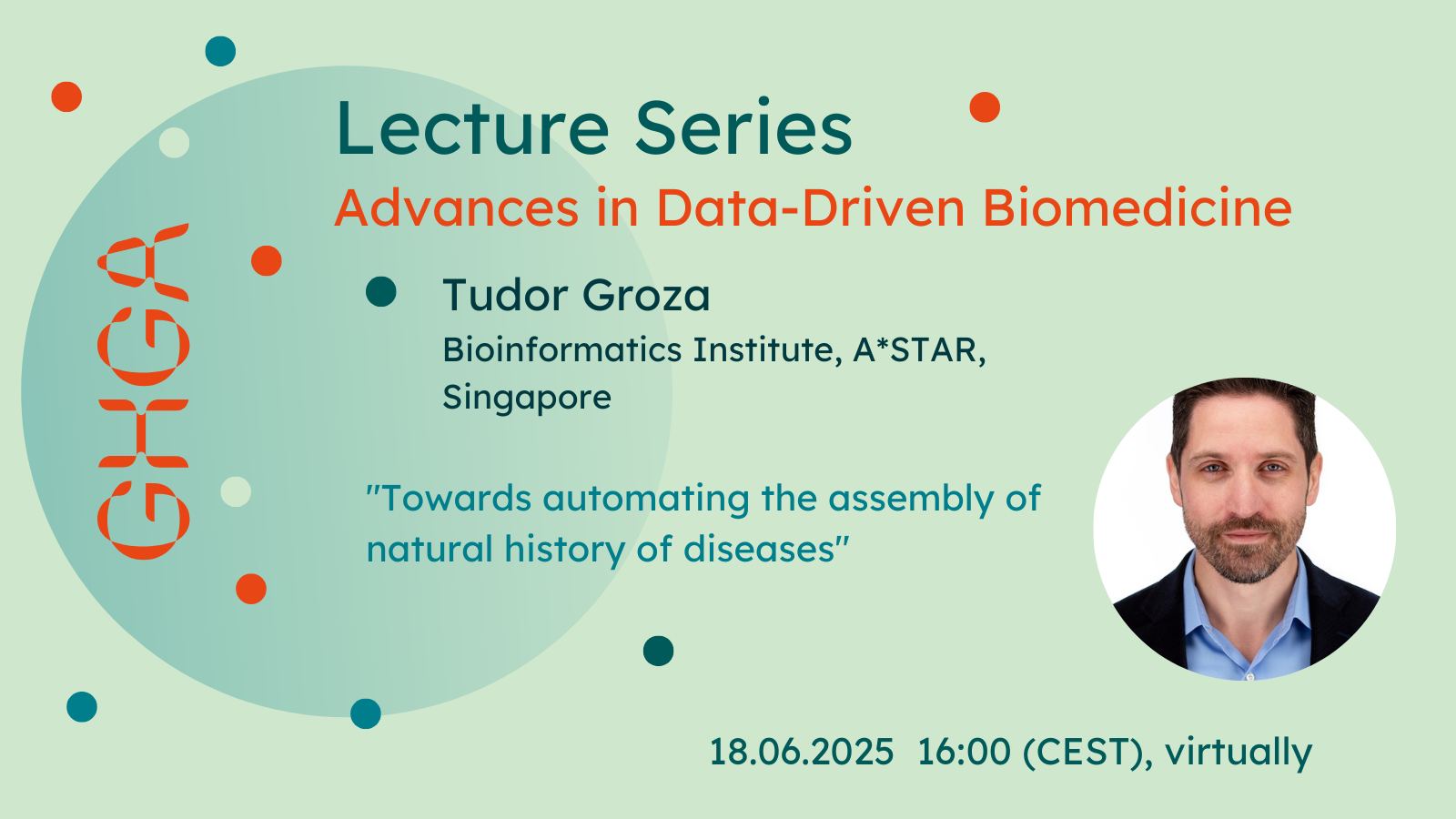GHGA Lecture Series: Tudor Groza (virtual)
- 18 Jun 2025
Tudor Groza from the the Agency for Science, Technology and Research (A*STAR, Singapore) will talk about "Towards automating the assembly of natural history of diseases" at the GHGA lecture series "Advances in Data-Driven Biomedicine" on June 18, 2025.
Register here.
Abstract:
Most Rare Diseases lack established treatment protocols, highlighting the need for proper care pathways addressing prognosis, diagnosis, and management. Advances in Generative AI and Large Language Models (LLMs) offer new opportunities to document the temporal progression of phenotypic features, addressing gaps in current knowledge bases. This talk introduces an LLM-based framework to capture the natural history of diseases, including a specific use case that focuses on Noonan syndrome.
Biography:
Tudor Groza is a Principal Scientist at the Bioinformatics Institute, A*STAR and KK Women's and Children's Hospital, Singapore, Visiting Scientist at the Rare Care Centre, Perth, Australia and an Adj Prof at the School of Electrical Engineering, Computing and Mathematical Sciences, Curtin University, Australia. He has a background and expertise in knowledge representation, ontologies, natural language processing and artificial intelligence in precision medicine. His work spans across various dimensions of the research - clinical care continuum, from devising algorithms to support clinical decision-making in the rare disorders field, to standardisation of clinical terminology and integration with national public and private health systems. Over the course of the last 15 years, Tudor focused on contributing to the clinical phenotyping community by building deep phenotyping tools to aid the decision-making process in clinical genomics and primary care. He led several of the global phenotype standardisation initiatives, including among others, the Phenotype Representation group in the Global Alliance for Genomics and Health (GA4GH) or the Data Sharing group within the Undiagnosed Diseases Network International, and currently leads the Rare Disease Community of Interest within GA4GH. As an entrepreneur, he was the CTO of Genome.One, where he led the Personal Health Applications business unit through a clinical accreditation, and in 2018, co-founded Pryzm Health with the goal to reduce the diagnostic odyssey of patients susceptible of rare disorders by introducing phenotype-driven patient stratification methods in primary care. Before joining the Rare Care team at the Perth Children's Hospital where we focused on using phenotype trajectories to build care coordination pathways for patients with rare disorders, he led the Phenomics team at the European Bioinformatics Institute where he contributed to the acceleration of translational and clinical applications of genomic technologies by creating comprehensive disease models using cross-species phenotype data.





